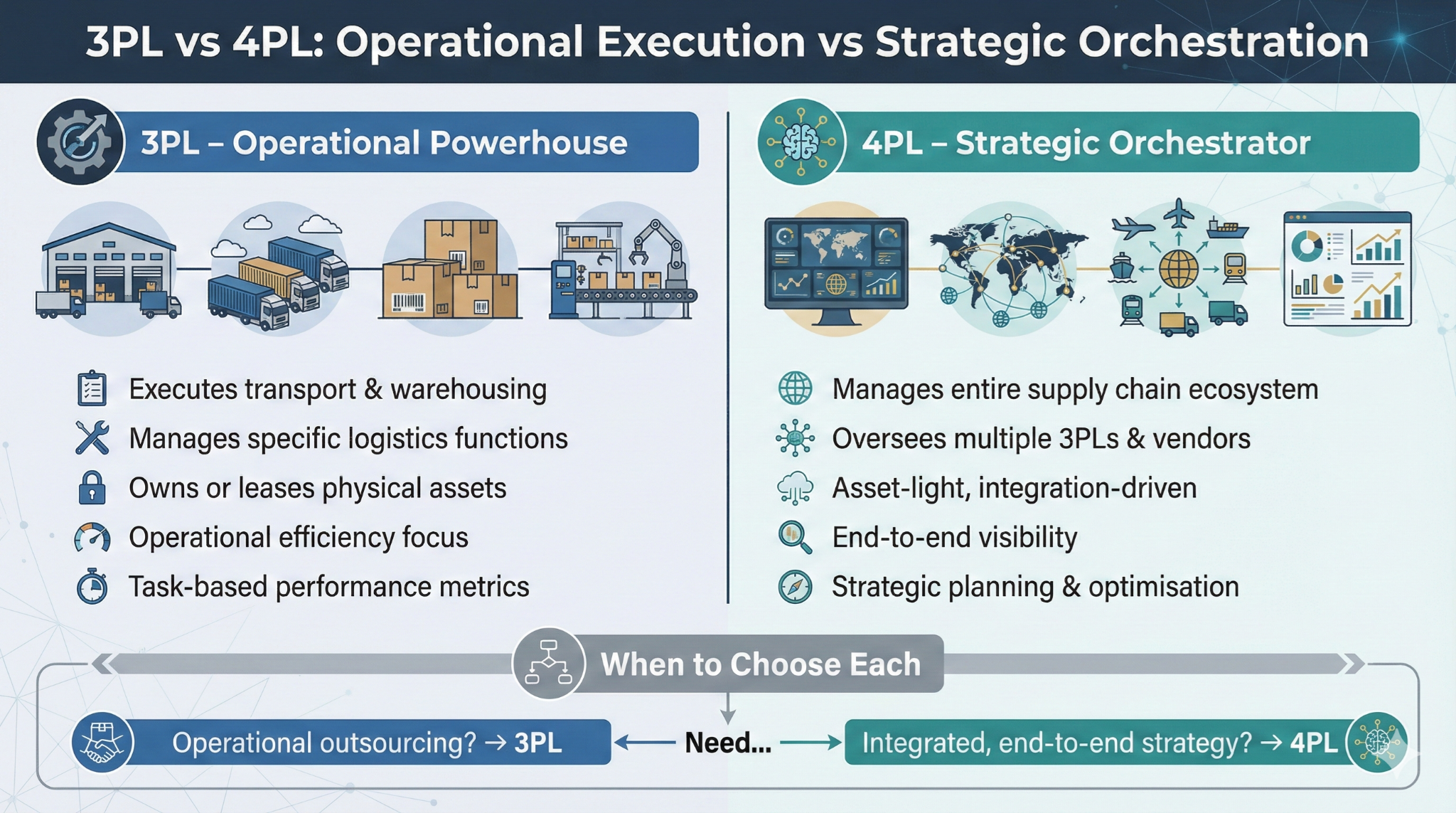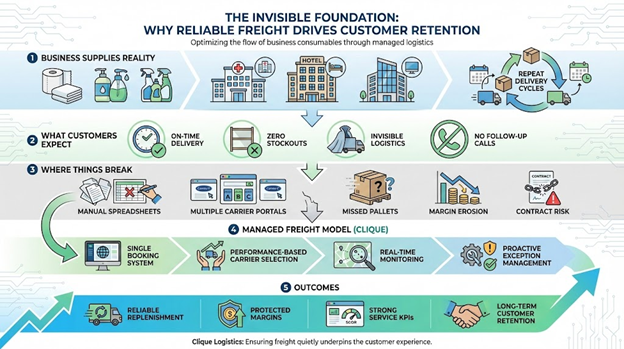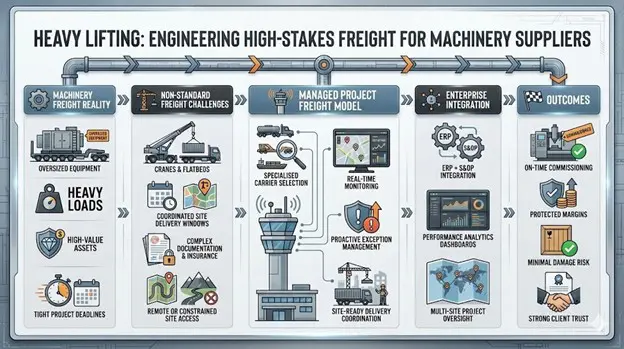Managing freight returns is a common but often overlooked challenge for businesses involved in domestic B2B (business-to-business) shipping. While outbound deliveries are well-planned and streamlined, returns can quickly become a logistical headache, leading to delays, operational inefficiencies, and a reduced customer experience. Effective freight management is essential to addressing these challenges.
Complex Logistics and Coordination
In the B2B space, freight for returns often involve a range of complex tasks, such as inspecting, repackaging, and restocking goods. Unlike individual consumer returns, B2B returns may require multiple departments to coordinate, from sales and inventory management to warehousing. With the added complexity of handling large orders or high-value items, managing these returns can be time-consuming and prone to error, especially if businesses don’t have a clear, centralised process in place. Without efficient freight solutions in Australia, the return process can become disjointed, resulting in a poor customer experience.
Delays and Disruption
Freight returns can cause significant delays, especially when the process isn’t streamlined. Businesses may experience disruptions in their supply chain as returned goods need to be inspected, sorted, and processed before they can be sent out again. If these steps aren’t handled efficiently, it can lead to extended lead times, which negatively impact both the business’s operations and the customer experience. Customers rely on timely exchanges or resolutions, and any delay can erode trust in the company’s reliability, highlighting the need for robust freight management solutions.
Lack of Standardisation
Many businesses struggle with a lack of standardisation in their returns processes. Different suppliers or customers may have varying return policies or criteria, creating confusion and inefficiencies. For instance, goods returned due to quality issues may require a different process than goods returned due to order discrepancies. Without a uniform system to manage returns, businesses can face delays, miscommunication, and errors that disrupt their operations, leading to a negative impact on customer satisfaction. Implementing effective Freight solutions is crucial to ensuring consistency and reducing friction in the returns process.
Environmental Impact
There’s increasing pressure on companies to reduce their environmental footprint, and freight returns add to this challenge. Domestic freight returns often involve unnecessary transportation and waste, contributing to higher carbon emissions and environmental degradation. Developing sustainable freight solutions in Australia —such as consolidating returns or refurbishing products for resale—can be difficult, but it’s increasingly important for businesses looking to align with sustainability goals while maintaining efficient returns management.
In conclusion, inefficient management of domestic B2B freight returns leads to more than just operational headaches. Delays, confusion, and disruptions ultimately impact customer experience and brand reputation. Businesses that optimise their freight management processes and invest in tailored freight solutions will not only enhance operational efficiency but also improve customer satisfaction, helping them stay competitive in a complex marketplace.




